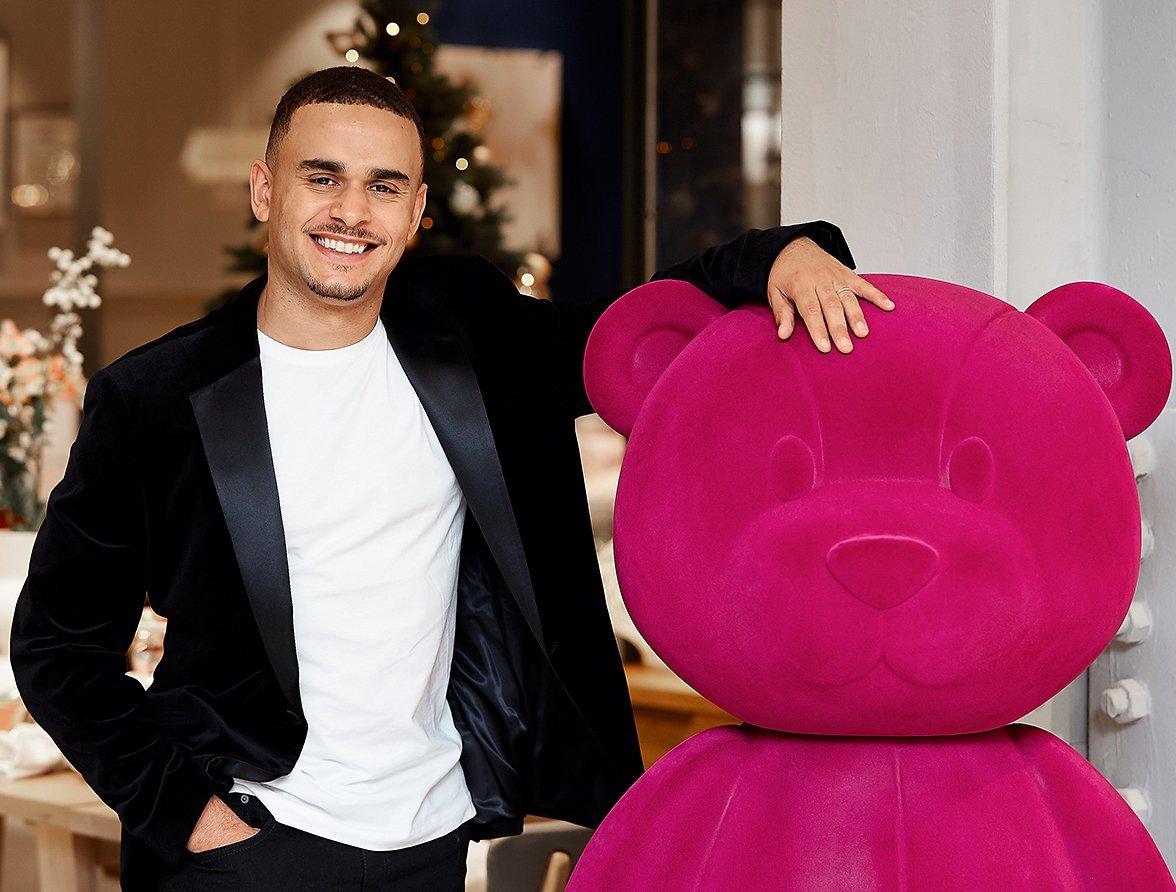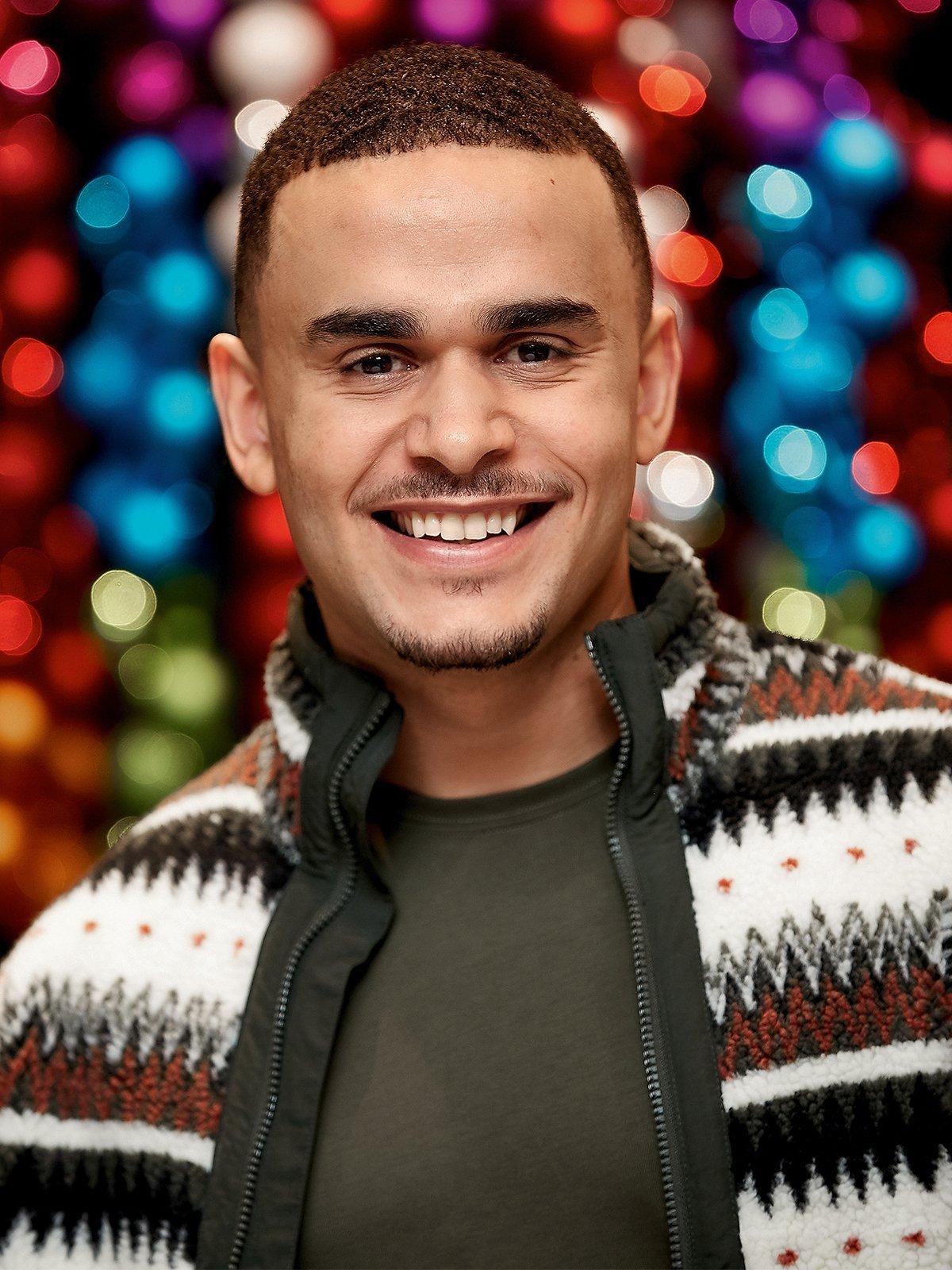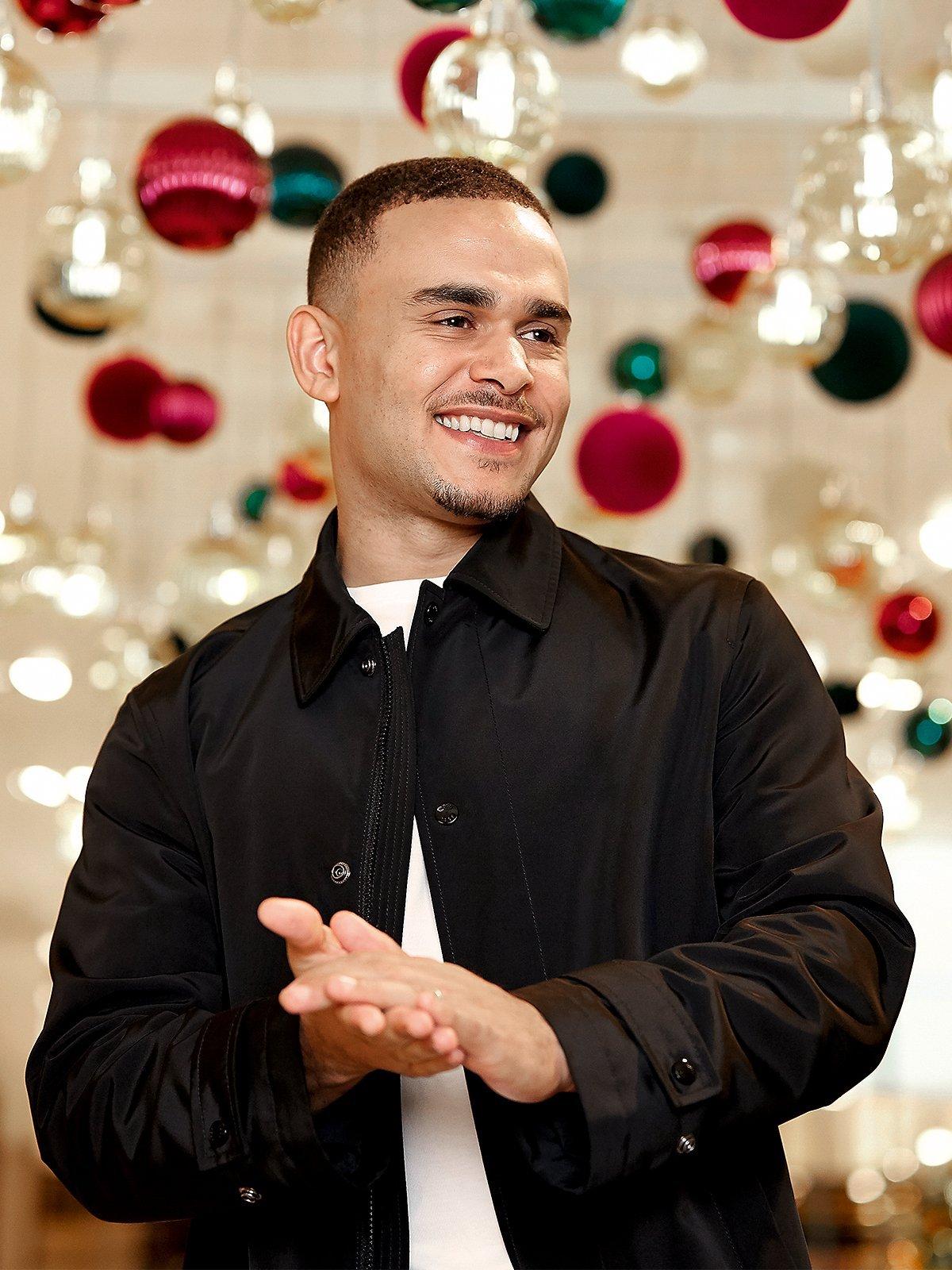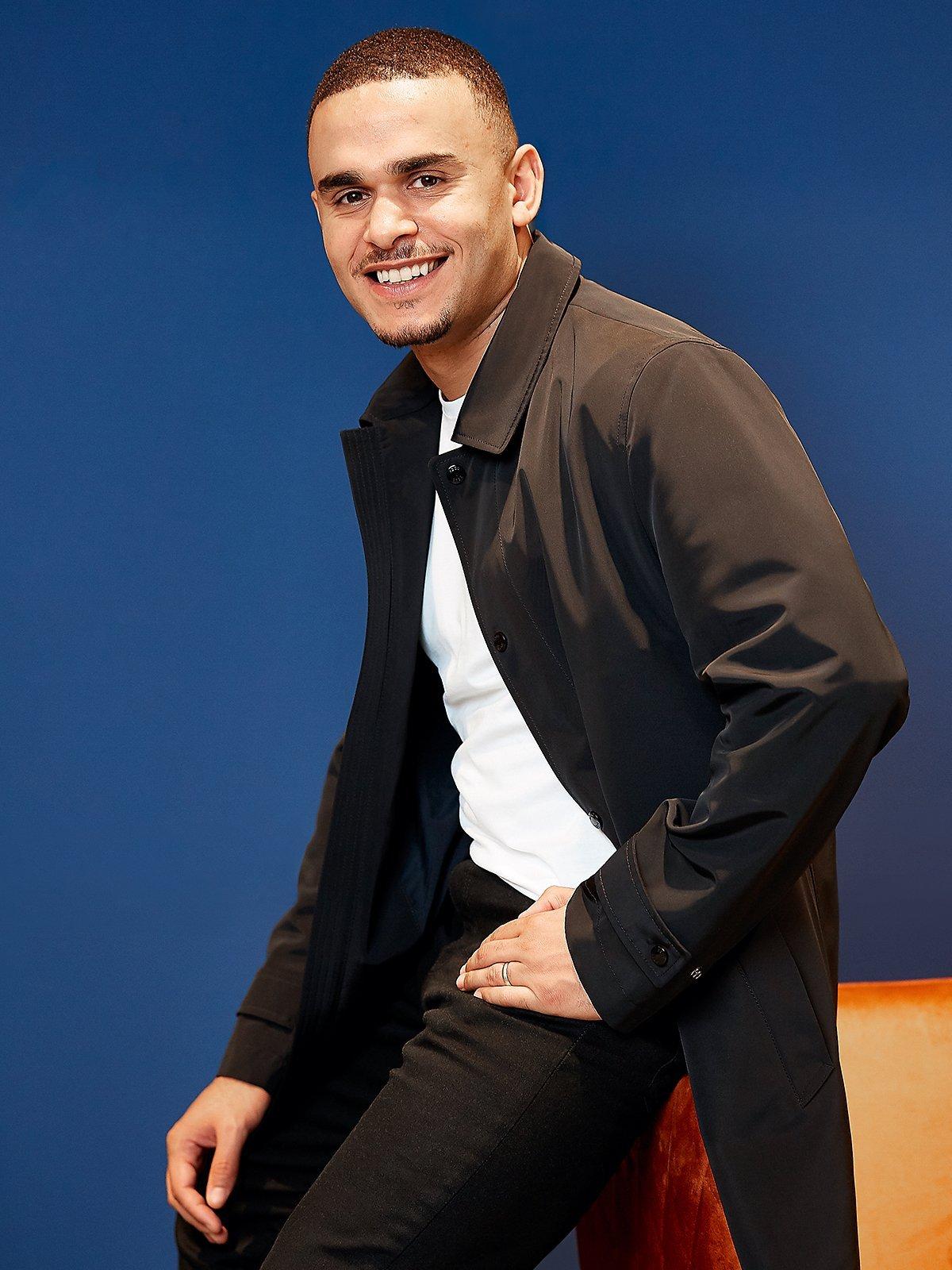Interview
All about Ashley John-Baptiste
What really happens when you grow up in care? We chat to BBC senior reporter and presenter Ashley John-Baptiste, a member of the John Lewis Partnership’s Building Happier Futures advisory group, about his care experience, going to Cambridge University and how he’s spending Christmas…
Can you tell us a bit about your involvement in the Partnership’s Building Happier Futures programme?
Sharon [White, Chairman] contacted me and explained that the Partnership was launching an advisory group to help with its strategy for care-experienced people. I was honoured to have been invited to be in the advisory group, because I grew up in the care system and felt that I would love to help and support in any way that I can. I know first hand just how hard it is to leave care and feel like you can’t make something of your life because there are so many hurdles and so many challenges in your way. The fact that Sharon knew who I was was really flattering and it just shows the importance of using your voice.
Why is it so meaningful for you?
This isn’t sky gazing, it isn’t theory, this is practical support for people who are care-experienced. This is about really trying to change the landscape of what it means to be someone who leaves the care system. It’s not virtue signalling – the Building Happier Futures programme is really trying to make a difference.
How important is it to help care-experienced people gain employment?
Outcomes for care-experienced people are still low in terms of employment and higher education, so I think anything that can help bridge the gap and give care-experienced people opportunities to develop, learn and grow is obviously going to help them.
You grew up in care – how would you describe your childhood?
I have, like most people, certain cherished childhood memories. There were moments of normality and family homes that were incredible, but it would be a complete lie not to say that it was really tough navigating being moved between homes – I had five different placements before the age of 18. I can’t remember the first home that I lived in because I was so young, and I left the second one when I was around eight years old. Imagine being eight years old, thinking you’re with your forever family, and then you find you’re in this position where you’re being shunted to a care home. That happened time and time again for me and that experience felt like rejection.
Who supported you?
There were some incredible people who supported me, including, in one care home, a care worker called Lyndon, who made education a habit. I’m still in touch with him. He didn’t treat people based on the stigma of being in care, but genuinely saw potential and cared about each person. I had really good mates who are still now, to this day, like brothers to me. I look back with rose-tinted glasses because I know it was tough. I know that the moves were not good. I know that I’m quite rare in terms of my outcome and the life I now live as someone who has left care, but I’m also very grateful and I wouldn’t change it. I’m really proud to have come from where I’ve come from and to be the person I am.
What was school like for you?
It was a rollercoaster. I struggled a lot at the start, not in terms of academics, it was more behaviour and trusting adults because I’d never had an adult who had kept me. I didn’t trust authority, I was easily distracted and I had a lot of trauma, obviously, as a child in care. I went to inner-city comprehensive schools with a lot of diversity, but I loved that I went to diverse schools, and actually, some of the best learning that I’ve ever gone through was from those schools, not from the books but from the people and life experience. It wasn’t easy growing up – I went through stuff and I had to overcome it.
What were your career aspirations growing up?
I didn’t have aspirations, I never thought about higher education and it was a long time before someone told me that I could go to university. I had been expelled and there were moments of failure during school. I didn’t see people like me on TV or on the news, so I didn’t have this driving sense of wanting to be a journalist or a presenter. None of that was there. That said, there was always a sense of hope. There was always a sense of ‘this will not always be your life, things will change’. But actually, what that looked like in terms of a job, I wasn’t sure for ages.
Who helped you achieve your goals?
I had a lot of support from individuals like Lyndon and my teachers. My music teacher was incredible and gave me the use of one of the music rooms to let me have a creative outlet when I was struggling in school. The last foster home I had was really significant and the family were incredible. It was a home of faith, believing in your dreams and trusting in your potential. I was 14 when I went there, so those crucial years right before GCSEs, when things really matter. At the same time, I was being told that I was going to leave care at 18, so to have that safe space was really, really important. And it’s easy sometimes to underappreciate the support because there’s so much negativity, but those positive people were my pillars of promise.
What did it feel like when you left care at 18?
At the vital time of leaving care and going to university, I was able to get the local authority to help me with accommodation, which was important but also really hard. I was in this strange position of being alone in a council flat at 18 with £50 a week. I had barely any furniture and barely any money for food and it got really tough at points. I moved into my council flat for the summer, right after my A levels and just months away from starting at Cambridge University, one of the most privileged places to go to – very different to what I knew. I had to navigate that tension between the ages of 18 and 21 of having my time at Cambridge and thinking about my future but also having this overwhelming sadness of going back to my council flat for the holidays.
You then studied history at Cambridge University – how was it there?
I think the word is ‘special’ and I’m so grateful for it; especially back then, I didn’t know anyone else like me when I was a student there and barely knew any black people. There was also the class thing, so there were all these elements of difference that I felt and it was hard academically because I’d gone from a relatively low-performing state school setting to an elite academic space. My time there was challenging, but very rewarding.
We also hear you appeared on The X Factor…
I was in a band at university and my mates dared me to apply while doing my finals. I did, and days after graduating, I was at the O2 Arena for the auditions. I got put in a boy band called The Risk and we got really far. I think it was the live finals and I just got this overwhelming sense that it wasn’t really what I wanted to do, so I left. It was a tough decision. Who knows what could have happened, but I had to be true to myself.
Can you tell us how you got into broadcast journalism at the BBC?
Even when I was at Cambridge, I didn’t think about broadcast journalism as a career. Then BBC Three got in touch after The X Factor and they offered me the chance to present the documentary Care Home Kids: Looking For Love. I did it a bit reluctantly, but loved the journalistic nose that I had to have on the show, and the curiosity of asking questions that I probably wouldn’t ask in everyday life. The whole thing was such a revelation and because of that, I decided I wanted to become a BBC broadcast journalist. The opportunity was very serendipitous, but it also gave me the belief that I could do it because, growing up, I didn’t know of people like me in the media. I got a BBC traineeship after that and it’s all just gone from there.
What are your career highlights so far?
There are so many but reporting in Russia during the 2018 World Cup is up there. I’m really pleased with the show that I present with Kym Marsh called For Love or Money; it’s my first format show that I’ve presented and it’s gone from strength to strength. Being a reporter covering the Grenfell Tower fire and even a recent documentary of mine about siblings in the care system are definitely other highlights, and there’s much more to come, which is exciting. I love telling stories that really put a spotlight on people from unheard communities.
What would you tell your teenage self?
You are more than what you’ve been through.
Tell us a bit about your life outside of work – from your Instagram feed, you’re very much a family man…
I’ve got two little girls, a two-year-old and a six-month-old. My partner Jo and I have recently celebrated our five-year wedding anniversary. Family for me is everything and I look at my kids now and I cannot believe that I have all these blessings. To think that I didn’t have a blueprint as a father, but here I am with this amazing opportunity to be a dad to two girls. There was a time when I questioned whether I’d be able to have a family because of what I had been through. But again, it’s just a complete lie that somehow you’re incapable of loving people because you haven’t had people do that to you in the way that you wanted.
How will you be spending Christmas?
A quiet Christmas Day with my family but then on Boxing Day, we’re hosting some friends and family, so that’s the big party day. Christmas now is so different from those I experienced in care.
What was the last thing you bought from John Lewis or Waitrose?
I recently rushed to JL Oxford Street to buy a shirt as I was going to an event after work and didn’t have one. The convenience of the high street is still so important.
Do you have a final message for us?
Through the Building Happier Futures initiative, there is a lot of positive potential to change the lives of so many young people. I just hope that everyone can see the privilege of that. There’ll be young people who could literally have their life changed forever through this programme and the John Lewis Partnership… and that is something to be proud of.
Quickfire Christmas questions
Chocolate money or Chocolate Orange?
Chocolate Orange.
Pigs in blankets or stuffing?
That’s a hard one! Pigs in blankets.
Christmas pud or mince pies?
Christmas pud.
Home Alone or Elf?
Home Alone.
Christmas Eve out with mates or Boxing Day on the sofa?
I need a night out, I’ve got kids! Christmas Eve out with mates.
Turkey sandwiches or turkey curry?
Turkey sandwiches.
Christmas jumper or Christmas socks?
Christmas jumper.




